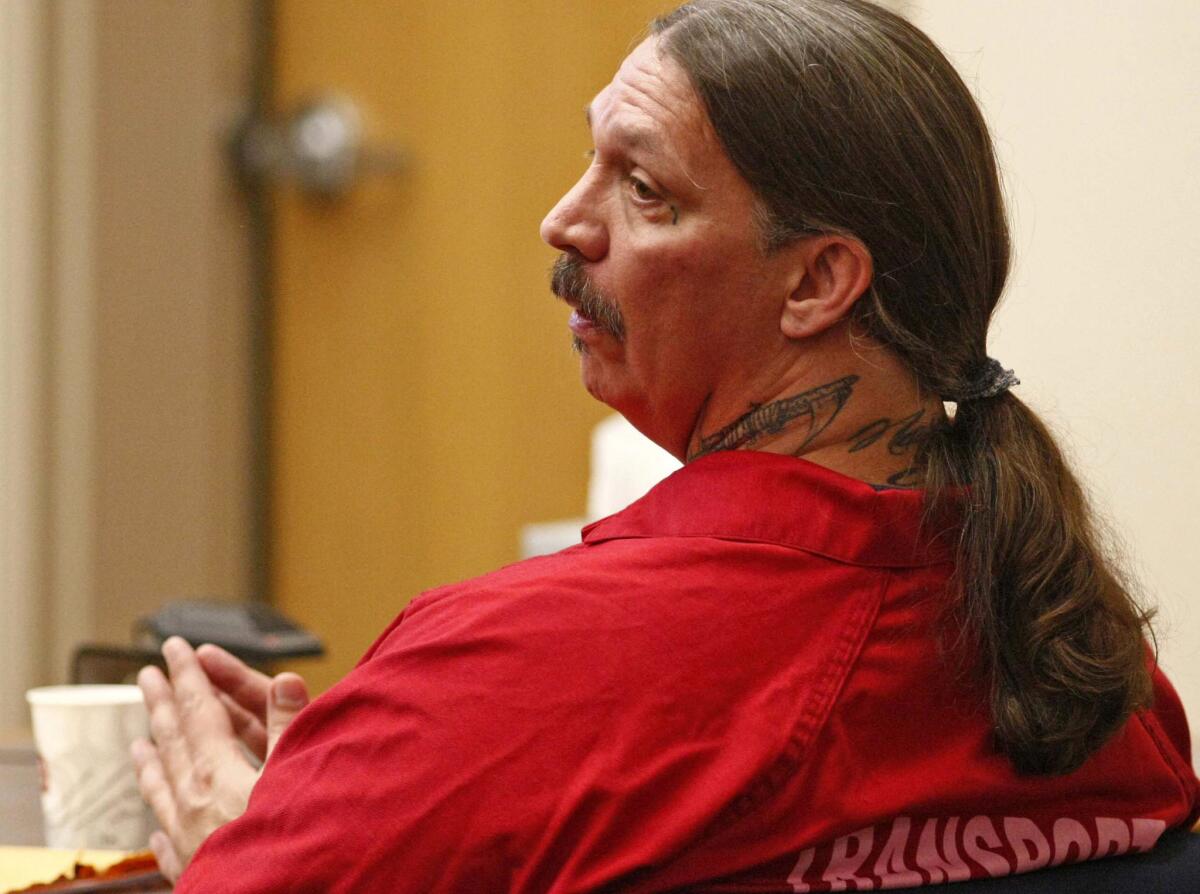Oregon’s top court upholds governor’s right to block execution

- Share via
Oregon’s top court has upheld the power of the governor to block an execution, even if the inmate wants a speedy death.
In a ruling released on Thursday, the Oregon Supreme Court held that Gov. John Kitzhaber acted within his authority when he granted a reprieve delaying the death sentence of Gary Haugen, who was convicted of two murders. Haugen had brought suit against the governor, arguing that Kitzhaber had improperly ordered the reprieve because the chief executive opposed the death penalty.
The governor had granted the reprieve before Haugen was scheduled to be executed in 2011. Kitzhaber said he refused to allow an execution under a state death-penalty system he views as broken and has vowed to block any execution while in office.
Kitzhaber “stated that he granted the reprieve because of his view that the death penalty is not ‘fairly and consistently applied’ and his personal belief that the death penalty does not ‘bring justice,’” the court ruled in a 39-page opinion. “He determined that those reasons were sufficient to issue a reprieve of Haugen’s death sentence. We are not asked to, and we do not, review the Governor’s judgment in reaching that conclusion.
“The issue is whether the Governor’s action was within his constitutional authority, and we conclude that it was,” the opinion states.
In a prepared statement, Kitzhaber renewed his call that the state’s capital punishment system be reformed.
“I am pleased that the Oregon Supreme Court affirmed my constitutional authority to issue a reprieve,” the governor said in the statement. “I renew my call for a reevaluation of our current system that embraces capital punishment, which has devolved into an unworkable system that fails to meet the basic standards of justice. I am still convinced that we can find a better solution that holds offenders accountable and keeps society safe, supports the victims of crime and their families and reflects Oregon values.”
The governor has called for a statewide vote to abolish capital punishment.
The death penalty has been one of the thornier -- and changing -- issues in American public policy. In the mid-1960s, the Gallup poll showed that Americans were about evenly split on the death penalty, but a poll in January showed support for the death penalty in murder cases was supported by a ratio of about 2 to 1. In the early 1990s about 80% supported the death penalty.
In addition to the moral arguments -- that not even the state has a right to kill -- opponents argue that the death penalty is disproportionately applied to people of color and other minorities, and in some cases people who turn out to have been innocent are executed. About 18 states have abolished the death penalty.
In Oregon, Haugen was sentenced to death along with an accomplice in 2007 for the murder of a fellow inmate. At the time, Haugen was serving a life sentence for beating his former girlfriend’s mother to death in 1981.
ALSO:
Feisty Facebook page makes Ohio cop ‘Internet sensation’
Another wildfire erupts in Colorado, possibly from lightning
More in U.S. caring for someone with health issues, study finds
More to Read
Sign up for Essential California
The most important California stories and recommendations in your inbox every morning.
You may occasionally receive promotional content from the Los Angeles Times.











